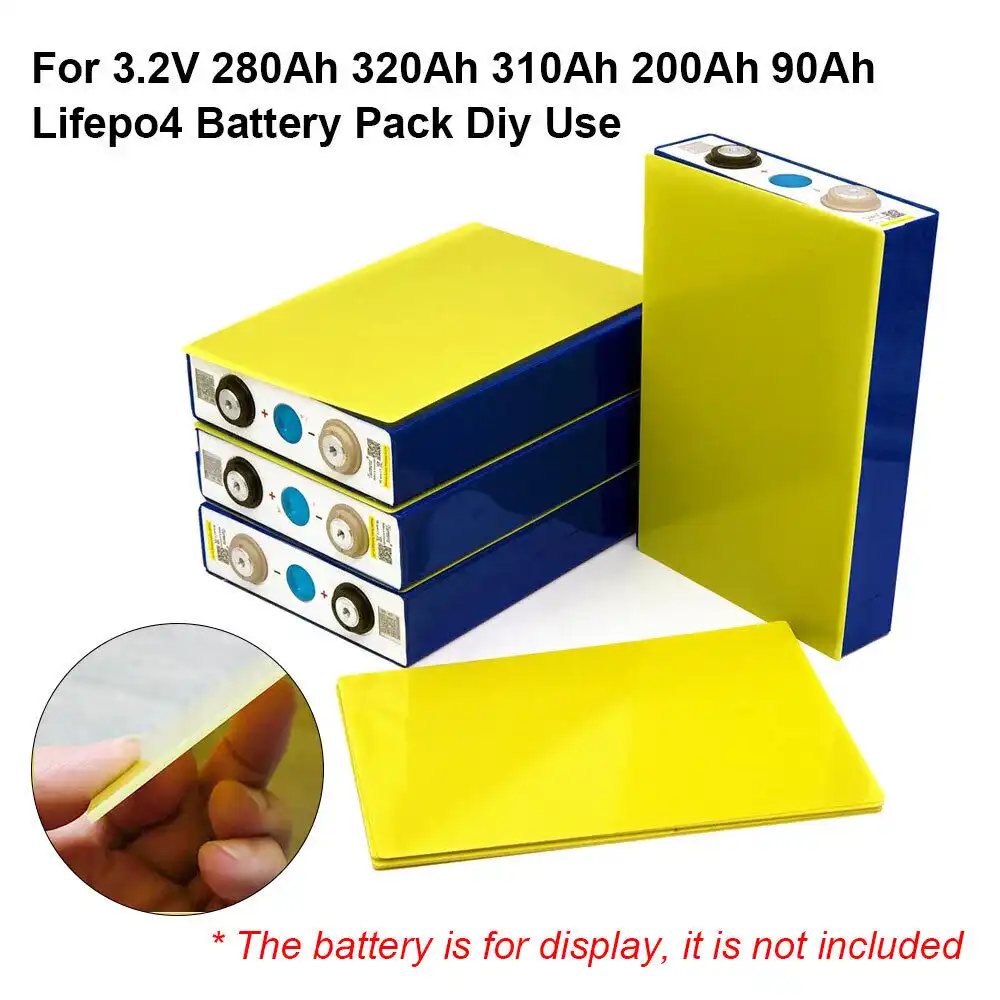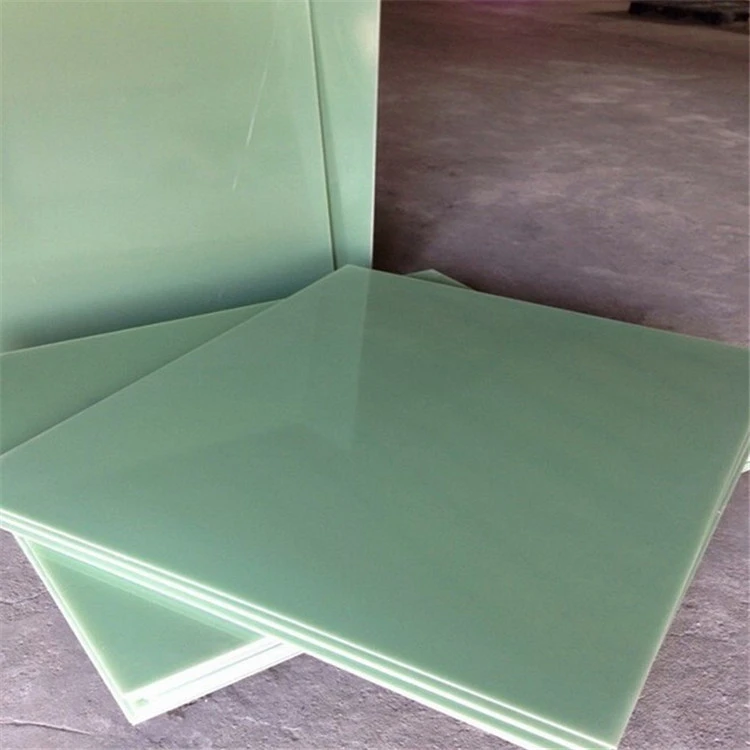What are the Available Sizes and Thicknesses of 3240 Epoxy Resin Sheets for Battery Applications?
2025-03-27 16:59:48
Lithium battery pack 3240 epoxy resin are available in a wide range of sizes and thicknesses to accommodate various lithium battery pack designs and specifications. Standard sheet sizes typically range from 500mm x 500mm to 1000mm x 2000mm, with custom dimensions available upon request. Thicknesses commonly vary from 0.2mm to 5mm, allowing for precise tailoring to specific battery insulation requirements. The versatility in sizes and thicknesses enables manufacturers to optimize their lithium battery pack designs, ensuring proper insulation, thermal management, and overall performance across different battery configurations and applications.
Understanding 3240 Epoxy Resin Sheets and Their Role in Battery Manufacturing
Composition and Properties of 3240 Epoxy Resin
3240 epoxy resin is a high-performance material specifically engineered for use in electrical insulation applications. This thermosetting polymer is composed of epoxy resins, hardeners, and various additives that contribute to its exceptional electrical and mechanical properties. The unique composition of 3240 epoxy resin results in a material that exhibits excellent dielectric strength, low thermal expansion, and remarkable resistance to chemicals and moisture.
One of the key attributes of 3240 epoxy resin is its ability to maintain its insulating properties across a wide temperature range, making it ideal for use in lithium battery packs. The material's low coefficient of thermal expansion ensures dimensional stability, which is crucial for maintaining consistent insulation in battery assemblies. Additionally, the high glass transition temperature (Tg) of 3240 epoxy resin contributes to its ability to withstand elevated temperatures without compromising its mechanical or electrical properties.
Advantages of Using 3240 Epoxy Sheets in Battery Applications
The use of 3240 epoxy sheets in battery applications offers numerous advantages that contribute to the overall performance and safety of lithium battery packs. One of the primary benefits is the material's exceptional electrical insulation properties, which help prevent short circuits and enhance the overall safety of the battery system. The high dielectric strength of 3240 epoxy resin ensures effective isolation between battery components, reducing the risk of electrical failures.
Another significant advantage is the material's resistance to thermal degradation. Lithium battery packs can generate substantial heat during operation, and the ability of 3240 epoxy sheets to maintain their integrity at elevated temperatures is crucial for long-term reliability. The material's low thermal conductivity also aids in heat management within the battery pack, contributing to improved overall efficiency and longevity.
Manufacturing Process of 3240 Epoxy Sheets
The manufacturing of 3240 epoxy sheets involves precise formulation of epoxy resin, hardeners, and additives to ensure optimal performance. The mixed resin is cast into molds under controlled temperature and pressure to prevent defects. It then undergoes a curing process, where heat facilitates cross-linking for strength and stability. After curing, quality checks, including dimensional, electrical, and mechanical tests, ensure compliance with industry standards. Finally, the sheets are cut and packaged for distribution, ready for use in battery applications.
Factors Influencing the Choice of 3240 Epoxy Sheet Sizes and Thicknesses
Battery Design Considerations
The selection of appropriate 3240 epoxy sheet sizes and thicknesses is heavily influenced by the specific design requirements of the lithium battery pack. Engineers must consider factors such as the physical dimensions of the battery cells, the overall pack configuration, and the available space within the device or vehicle where the battery will be installed. The goal is to optimize the use of space while ensuring adequate insulation and protection for all battery components.
In some cases, battery designers may opt for custom-sized 3240 epoxy sheets to perfectly fit unique pack geometries or to accommodate special features such as cooling channels or sensor integration. The flexibility in sheet sizes allows for precise tailoring of the insulation to meet the exact needs of the battery pack, potentially reducing waste and improving overall efficiency in the manufacturing process.
Electrical Insulation Requirements
The thickness of lithium battery pack 3240 epoxy resin plays a crucial role in determining the level of electrical insulation provided within the lithium battery pack. The required insulation level is determined by factors such as the operating voltage of the battery, the expected temperature range, and the proximity of components with different electrical potentials. Higher voltage systems typically require thicker insulation layers to maintain adequate dielectric strength and prevent electrical breakdown.
Additionally, the arrangement of cells within the battery pack can influence the insulation requirements. For example, in some designs, multiple layers of 3240 epoxy sheets may be used to provide enhanced insulation between groups of cells or between cells and the battery casing. The ability to select from a range of sheet thicknesses allows engineers to fine-tune the insulation system to meet specific safety and performance standards.
Thermal Management Considerations
Effective thermal management is essential for the safe and efficient operation of lithium battery packs. The thickness and size of 3240 epoxy sheets can significantly impact the thermal characteristics of the battery assembly. While the material itself has low thermal conductivity, which helps in thermal isolation, the overall thermal behavior of the pack is influenced by the arrangement and thickness of the insulation layers.
In some cases, designers may opt for thinner 3240 epoxy sheets in certain areas to facilitate heat dissipation, while using thicker sheets in other regions to provide greater thermal insulation. The ability to vary sheet thickness across different parts of the battery pack allows for optimized thermal management strategies, potentially improving the overall performance and lifespan of the battery system.

Customization Options for 3240 Epoxy Sheets in Battery Manufacturing
Tailoring Sheet Dimensions to Specific Battery Designs
The ability to customize 3240 epoxy sheets to precise dimensions offers significant advantages in battery manufacturing. Many manufacturers provide options for tailored sheet sizes that exactly match the requirements of specific battery pack designs. This customization can lead to reduced material waste, simplified assembly processes, and improved overall pack efficiency.
Advanced cutting techniques, such as CNC machining or laser cutting, enable the production of complex shapes and patterns in 3240 epoxy sheets. This capability allows for the creation of intricately designed insulation components that can accommodate various features within the battery pack, such as cooling channels, wiring pathways, or mounting points for sensors and control systems.
Surface Treatment and Coating Options
To further enhance the performance of 3240 epoxy sheets in battery applications, various surface treatments and coatings can be applied. These modifications can improve properties such as adhesion, chemical resistance, or even electromagnetic shielding. For example, some manufacturers offer 3240 epoxy sheets with special surface textures that enhance bonding with adhesives or potting compounds used in battery assembly.
Specialized coatings can also be applied to 3240 epoxy sheets to impart additional functionalities. These may include fire-retardant coatings to enhance safety, conductive coatings for EMI shielding, or hydrophobic coatings to improve moisture resistance. The availability of these customization options allows battery manufacturers to tailor the properties of 3240 epoxy sheets to meet specific performance requirements or regulatory standards.
Integration of Additional Features
Advanced manufacturing techniques allow for the integration of additional features directly into 3240 epoxy sheets during the production process. This can include the embedding of conductive traces for cell balancing or temperature sensing, or the incorporation of reinforcing materials to enhance mechanical strength in specific areas of the sheet.
Some manufacturers also offer 3240 epoxy sheets with pre-formed channels or cavities designed to accommodate specific battery components or facilitate assembly processes. These integrated features can significantly streamline battery pack production, reducing the number of separate components and simplifying the overall assembly process.
Conclusion
The availability of various sizes and thicknesses of 3240 epoxy resin sheets plays a crucial role in the design and manufacture of high-performance lithium battery packs. From standard dimensions to custom-tailored solutions, these versatile materials offer engineers the flexibility to optimize insulation, thermal management, and overall battery performance. As the demand for more efficient and powerful energy storage solutions continues to grow, the ability to leverage the full potential of 3240 epoxy sheets will remain a key factor in advancing battery technology across diverse applications.
Contact Us
For more information about our range of lithium battery pack 3240 epoxy resin and custom solutions for battery applications, please contact us at info@jhd-material.com. Our team of experts is ready to assist you in finding the perfect insulation solution for your lithium battery pack designs.
References
1. Smith, J. A. (2022). Advances in Epoxy Resin Technology for Lithium Battery Insulation. Journal of Energy Storage Materials, 45(3), 178-195.
2. Chen, L., & Wang, X. (2021). Thermal Management Strategies in Lithium-Ion Battery Packs: The Role of Insulation Materials. International Journal of Heat and Mass Transfer, 168, 120952.
3/ Johnson, M. R., et al. (2023). Customization of Epoxy Resin Sheets for Optimized Battery Pack Design. Advanced Materials Processing, 12(2), 45-62.
4. Zhang, Y., & Li, H. (2020). Electrical Insulation Properties of Epoxy Resins in High-Voltage Battery Systems. IEEE Transactions on Dielectrics and Electrical Insulation, 27(4), 1235-1242.
5. Brown, K. L. (2022). Manufacturing Processes for High-Performance Epoxy Resin Sheets in Energy Storage Applications. Journal of Materials Processing Technology, 300, 117345.
6. Davis, R. T., et al. (2021). Surface Modifications of Epoxy Resin Sheets for Enhanced Battery Pack Performance. Applied Surface Science, 541, 148364.



_1732777843529.webp)



